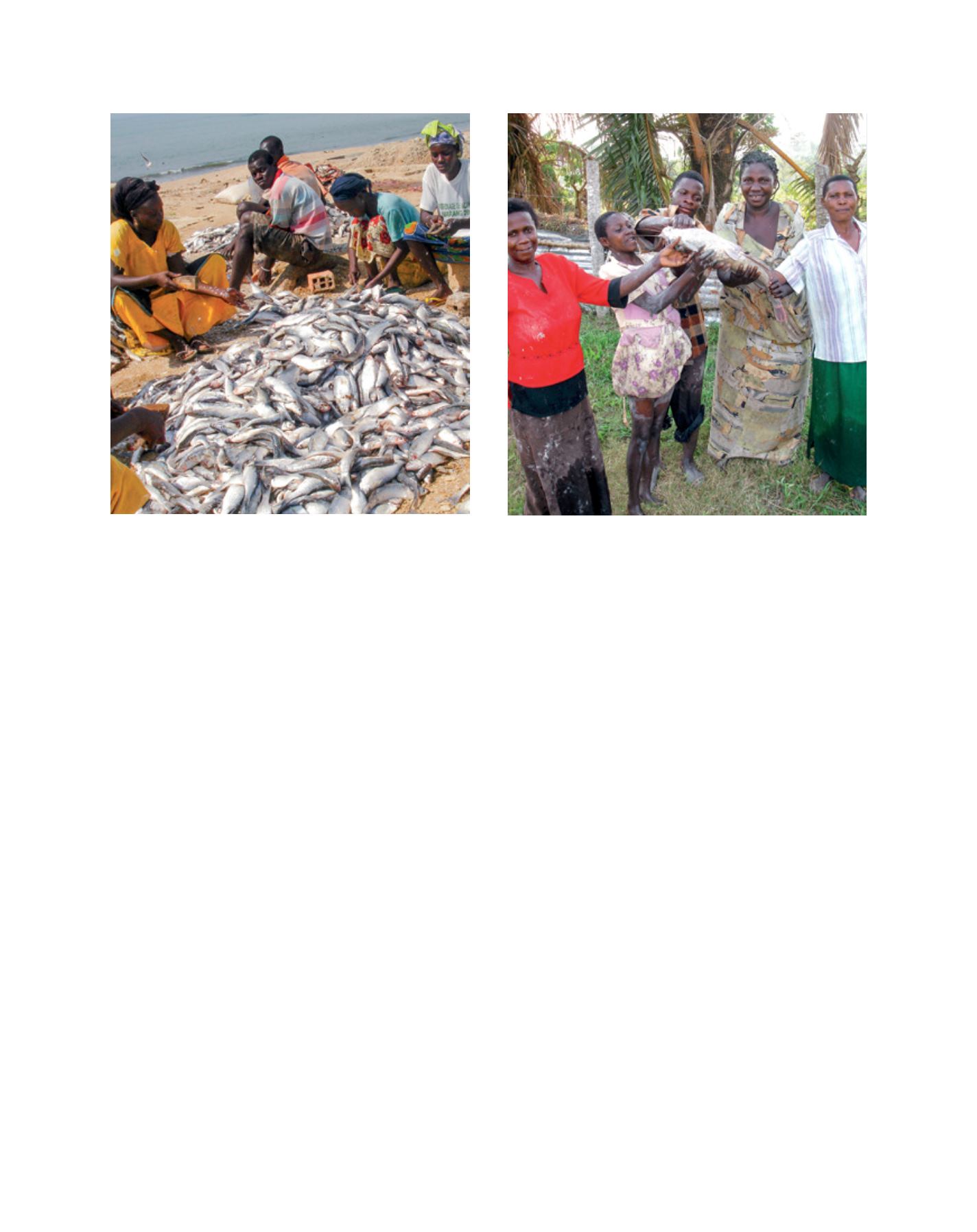

[
] 190
Through community dialogues, the community members
come together to discuss issues related to governance and the
use of natural resources in the community, as well as possi-
ble solutions. However, it has been observed that most of the
challenges of access to natural resources cannot be solved by
the community members alone, since the outside community
such as national and international policies contribute to the
emergence of these challenges. Therefore the participation of
all parties is important in these initiatives.
Community theatre has proven to be an important tool to
gather communities through public meetings at village and
ward levels. It enables them to reflect, internalize and analyse
their situations and challenges, but also to come up with
action plans on how to improve the situation.
Disseminating relevant national and international policies
that are related to fisheries, to create awareness and form a
strong foundation for advocacy and lobbying for improved
services in the community, is essential in order to protect
family fishing activities worldwide.
With a steady increase in the demand for fisheries resources,
many local communities must consider aquaculture as a
potential way to provide an alternative source of fish to
support families, especially women in fish farming activities.
There is a need to improve access to fisheries resources
for fisher communities as advocated for by WFF during its
engagement in the intergovernmental negotiations on the
International Guidelines for Securing Sustainable Small Scale
Fisheries (IG SSF) of the FAO Committee of Fisheries. Access
to fisheries resources is vital to enhance food security and thus
promote family fisheries.
Actions like increasing the amount of fish available for
trading locally will not only combat production for export
but also guide nations to make trade policies that will
achieve national food security. Harvesting and trade in
juvenile fish is a thriving alternative in many rural fisher
communities which cannot be reached by enforcement offic-
ers, due to decreasing access to fish for those communities.
This, however, is exacerbating the problem of sustaining
fisheries resources in the lake.
Making and reviewing policies with the active participation
and engagement of local communities and their organizations
is key to transforming both the policies and their implemen-
tation. Seven members of WFF from Africa, Asia and Latin
America were engaged in a national consultation on what they
would like to see included in the IG SSF.
Evidence reveals that women engaged in fishing do so for
reasons directly related to food security at the family level.
According to the High Level Panel of Experts on Food Security
and Nutrition of the Committee on World Food Security
(2014), while women’s financial remuneration for their work
in small-scale fisheries is often insubstantial compared to
that of men, their contributions to family nutritional needs
is thought to be integral to their households’ food security.
Developments in the sector should explore solutions that
will minimize women’s vulnerability and increase their active
participation in the governance of fisheries resources.
The concept of family fisheries must trickle down to
the country level if it is to be appreciated, understood and
given substantial implementation structures on the ground.
To enable long-term investment in fisheries at the family
level, land ownership needs to be addressed coupled with
increasing access to expertise and support in fish farming,
access to credit especially for women, and development of
the rural infrastructure.
Improving infrastructure was cited as a major challenge during the exchange
visit to Mbour by WFF members from six African countries
KWDT supports family fish farming to meet the increasing demand for fish,
ensure food security and create household incomes
Image: KWDT
Image: KWDT 2013
D
eep
R
oots
















